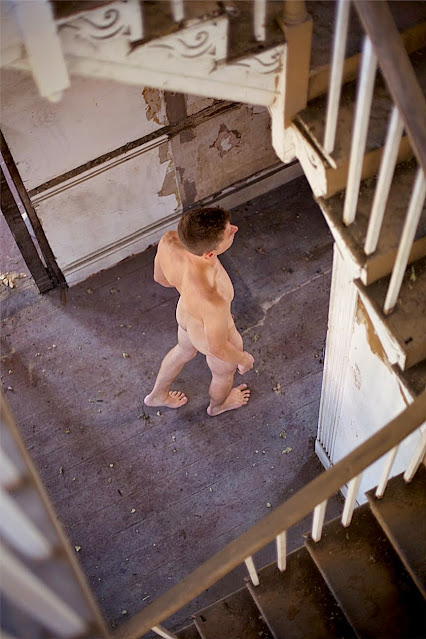
Author Salman Rushdie attacked on lecture stage in New YorkCHAUTAUQUA, N.Y. (AP) — Salman Rushdie, the author whose writing led to death threats from Iran in the 1980s, was attacked Friday as he was about to give a lecture in western New York.
An Associated Press reporter witnessed a man storm the stage at the Chautauqua Institution and begin stabbing Rushdie in the neck, as he was being introduced.
The author fell to the floor, and the man was restrained.
Rushdie’s book “The Satanic Verses” has been banned in Iran since 1988, as many Muslims consider it to be blasphemous.
A year later, Iran’s late leader Ayatollah Ruhollah Khomeini issued a fatwa, or edict, calling for Rushdie’s death.
Iran has also offered over $3 million in reward for anyone who kills Rushdie.
Source: The Associated Press, Staff, August 12, 2022
This is a breaking news story. This page will be updated.
8/13/2022 UPDATE
New York | Salman Rushdie on ventilator, may lose one eye, agent saysSalman Rushdie's agent has said "the news is not good" after the author was stabbed at an event in New York state.
He was attacked on stage, and is now on a ventilator and unable to speak, Andrew Wylie said in a statement, adding that the author, 75, may lose one eye.
Mr Rushdie has suffered years of Islamist death threats after writing The Satanic Verses, published in 1988.
Police detained a suspect named as Hadi Matar, 24, from Fairview, New Jersey.
New York State Police said the suspect ran onto the stage and attacked Mr Rushdie and an interviewer at the Chautauqua Institution in western New York state.
Mr Rushdie was stabbed at least once in the neck and in the abdomen, authorities said. He was taken to a hospital in Erie, Pennsylvania, by helicopter.
"Salman will likely lose one eye; the nerves in his arm were severed; and his liver was stabbed and damaged," his agent said.
No motive or charges have yet been confirmed by police, who are in the process of obtaining search warrants to examine a backpack and electronic devices found at the centre.
Police told a press conference that staff and audience members had rushed the attacker and took him to the ground, and he was then arrested. A doctor in the audience gave Mr Rushdie first aid.
The interviewer who was with Mr Rushdie, Henry Reese, suffered a minor head injury and was taken to a local hospital. Mr Reese is the co-founder of a non-profit organisation that provides sanctuary to writers exiled under threat of persecution.
Linda Abrams, an onlooker from the city of Buffalo, told The New York Times that the assailant kept trying to attack Mr Rushdie after he was restrained.
"It took like five men to pull him away and he was still stabbing," Ms Abrams said. "He was just furious, furious. Like intensely strong and just fast."
Salman Rushdie: The writer who emerged from hiding
Indian-born novelist Mr Rushdie catapulted to fame with Midnight's Children in 1981, which went on to sell over one million copies in the UK alone.
But his fourth book, published in 1988 - The Satanic Verses - forced him into hiding for nearly 10 years.
The surrealist, post-modern novel sparked outrage among some Muslims, who considered its content to be blasphemous - insulting to a religion or god - and was banned in some countries.
Several people were killed in anti-Rushdie riots in India and in Iran the British embassy in the capital, Tehran, was stoned.
In 1991 a Japanese translator of the book was stabbed to death, while a few months later, an Italian translator was also stabbed and the book's Norwegian publisher, William Nygaard, was shot - but both survived.
A year after the book's release, Iran's Supreme Leader Ayatollah Khomeini called for Mr Rushdie's execution. He offered a $3m (£2.5m) reward in a fatwa - a legal decree issued by an Islamic religious leader.
The bounty over Mr Rushdie's head remains active, and although Iran's government has distanced itself from Khomeini's decree, a quasi-official Iranian religious foundation added a further $500,000 to the reward in 2012.
There has been no reaction from the Iranian government to Mr Rushdie's stabbing. Iranian media were describing Mr Rushdie as an apostate - someone who has abandoned or denied his faith - in their coverage.
The British-American citizen - who was born to non-practising Muslims and is an atheist himself - has become a vocal advocate for freedom of expression, defending his work on several occasions.
Salman Rushdie has faced death threats for more than 30 years since the publication of The Satanic Verses. Mr Rushdie said the main thrust of his novel was to examine the immigrant experience, but some Muslims were offended by portrayals of the Prophet Muhammad and the questioning of the nature of the revelation of the Quran as the word of God.
The Satanic Verses was banned first in the author's country of birth, India, and then several other countries before Iran's Ayatollah Khomeini issued his infamous fatwa.
The fatwa called for the killing of anyone involved in the publication of the book and offered rewards to those who took part in the murders. That fatwa has never formally been rescinded.
Surprised by the widespread nature of the protests, Salman Rushdie apologised to Muslims but went into hiding.
When Mr Rushdie was knighted in 2007 by the Queen, it sparked protests in Iran and Pakistan, where one cabinet minister said the honour "justifies suicide attacks".
Several literary events attended by Mr Rushdie have been subject to threats and boycotts - but he continues to write. His next novel, Victory City, is due to be published in February 2023.
Fellow authors such as JK Rowling and Stephen King have written messages of support.
Booker-prize winning author, Ian McEwan, called it an "appalling attack" that "represents an assault on freedom of thought and speech"
"Salman has been an inspirational defender of persecuted writers and journalists across the world. He is a fiery and generous spirit, a man of immense talent and courage and he will not be deterred," he added.
Writer Taslima Nasreen, who was forced to flee her home in Bangladesh after a court said her novel Lajja offended Muslim's religious faith, said she now feared for her own safety in the wake of Mr Rushdie's attack.
Source: BBC, Sam Cabral in Washington & Matt Murphy in London, August 13, 2022
Praise, worry in Iran after Rushdie attack; government quiet
TEHRAN, Iran (AP) — Iranians reacted with praise and worry Saturday over the attack on novelist Salman Rushdie, the target of a decades-old fatwa by the late Supreme Leader Ayatollah Ruhollah Khomeini calling for his death.
It remains unclear why Rushdie's attacker, identified by police as Hadi Matar of Fairview, New Jersey, stabbed the author as he prepared to speak at an event Friday in western New York. Iran's theocratic government and its state-run media have assigned no motive to the assault.
But in Tehran, some willing to speak to The Associated Press offered praise for an attack targeting a writer they believe tarnished the Islamic faith with his 1988 book “The Satanic Verses.” In the streets of Iran’s capital, images of the late Ayatollah Ruhollah Khomeini still peer down at passers-by.
“I don’t know Salman Rushdie, but I am happy to hear that he was attacked since he insulted Islam," said Reza Amiri, a 27-year-old deliveryman. “This is the fate for anybody who insults sanctities.”
Others, however, worried aloud that Iran could become even more cut off from the world as tensions remain high over its tattered nuclear deal.
“I feel those who did it are trying to isolate Iran," said Mahshid Barati, a 39-year-old geography teacher. “This will negatively affect relations with many — even Russia and China.”
Khomeini, in poor health in the last year of his life after the grinding, stalemate 1980s Iran-Iraq war decimated the country's economy, issued the fatwa on Rushdie in 1989. The Islamic edict came amid a violent uproar in the Muslim world over the novel, which some viewed as blasphemously making suggestions about the Prophet Muhammad's life.
"I would like to inform all the intrepid Muslims in the world that the author of the book entitled ‘Satanic Verses’ ... as well as those publishers who were aware of its contents, are hereby sentenced to death," Khomeini said in February 1989, according to Tehran Radio.
He added: "Whoever is killed doing this will be regarded as a martyr and will go directly to heaven."
Early on Saturday, Iranian state media made a point to note one man identified as being killed while trying to carry out the fatwa. Lebanese national Mustafa Mahmoud Mazeh died when a book bomb he had prematurely exploded in a London hotel on Aug. 3, 1989, just over 33 years ago.
At newstands Saturday, front-page headlines offered their own takes on the attack. The hard-line Vatan-e Emrouz's main story covered what it described as: “A knife in the neck of Salman Rushdie.” The reformist newspaper Etemad's headline asked: “Salman Rushdie in neighborhood of death?”
The conservative newspaper Khorasan bore a large image of Rushdie on a stretcher, its headline blaring: “Satan on the path to hell.”
But the 15th Khordad Foundation — which put the over $3 million bounty on Rushdie — remained quiet at the start of the working week. Staffers there declined to immediately comment to the AP, referring questions to an official not in the office.
The foundation, whose name refers to the 1963 protests against Iran's former shah by Khomeini's supporters, typically focuses on providing aid to the disabled and others affected by war. But it, like other foundations known as “bonyads” in Iran funded in part by confiscated assets from the shah's time, often serve the political interests of the country's hard-liners.
Reformists in Iran, those who want to slowly liberalize the country's Shiite theocracy from inside and have better relations with the West, have sought to distance the country's government from the edict. Notably, reformist President Mohammad Khatami's foreign minister in 1998 said that the “government disassociates itself from any reward which has been offered in this regard and does not support it."
Rushdie slowly began to re-emerge into public life around that time. But some in Iran have never forgotten the fatwa against him.
On Saturday, Mohammad Mahdi Movaghar, a 34-year-old Tehran resident, described having a “good feeling” after seeing Rushdie attacked.
“This is pleasing and shows those who insult the sacred things of we Muslims, in addition to punishment in the hereafter, will get punished in this world too at the hands of people,” he said.
Others, however, worried the attack — regardless of why it was carried out — could hurt Iran as it tries to negotiate over its nuclear deal with world powers.
Since then-President Donald Trump unilaterally withdrew America from the accord in 2018, Tehran has seen its rial currency plummet and its economy crater. Meanwhile, Tehran enriches uranium now closer than ever to weapons-grade levels amid a series of attacks across the Mideast.
“It will make Iran more isolated,” warned former Iranian diplomat Mashallah Sefatzadeh.
While fatwas can be revised or revoked, Iran's current Supreme Leader Ayatollah Ali Khamenei who took over after Khomeini has never done so.
“The decision made about Salman Rushdie is still valid,” Khamenei said in 1989. “As I have already said, this is a bullet for which there is a target. It has been shot. It will one day sooner or later hit the target.”
As recently as February 2017, Khamenei tersely answered this question posed to him: “Is the fatwa on the apostasy of the cursed liar Salman Rushdie still in effect? What is a Muslim’s duty in this regard?”
Khamenei responded: “The decree is as Imam Khomeini issued.”
Source: The Associated Press, Staff, August 13, 2022
Salman Rushdie attack: suspect charged with attempted murder
Suspect, 24, from Fairview, New Jersey remanded without bail over alleged attack on author in New York
The man suspected of stabbing the novelist Salman Rushdie at a literary festival in western New York on Friday faces charges of attempted murder and assault, authorities said on Saturday.
Investigators booked Hadi Matar, 24, of Fairview, New Jersey, with one count of attempted second-degree murder in Rushdie’s stabbing and one count of second-degree assault on a man who shared a stage with the author at the time of the attack, according to a statement from authorities.
Matar later entered a not-guilty plea during a brief court hearing Saturday. He wore a black and white inmate’s jumpsuit, and his hands were cuffed in front of him.
Attempted murder is the more serious of the two counts. The crime, under New York law, can carry up to 25 years in prison upon conviction.
Rushdie, 75, was at the Chautauqua Institution to speak about the importance of America’s giving asylum to exiled writers when he was attacked.
Matar, who bought a ticket, allegedly rushed on stage and stabbed Rushdie in the neck and the stomach before being tackled by spectators, institution staffers and two local law enforcement officers providing security.
A helicopter crew flew Rushdie to a hospital in nearby Erie, Pennsylvania, where he underwent surgery. He remained hospitalized Saturday and appeared likely to lose one eye after the nerves in an arm were severed and his liver was stabbed, according to his literary agent.
The man sharing the stage with Rushdie was 73-year-old Ralph Henry Reese, who runs an organization that provides sanctuary to writers under threat of political persecution. He suffered a relatively minor facial wound during the attack.
New York state police detained Matar at their barracks before booking him into the Chautauqua county jail late Friday. A judge ordered him held without bail, the local county district attorney, Jason Schmidt, said in a statement.
Officials haven’t specified why they think Matar may have wanted to kill Rushdie.
But many have noted that Rushdie was under a “fatwa” – or decree – calling for his death since 1989, when the late Iranian leader Ayatollah Ruhollah Khomeini issued it as retribution to the Indian-born author’s The Satanic Verses.
The Iranian regime has since sought to separate itself from the fatwa, but the price on Rushdie’s head was increased in recent years to more than $3m.
Many Muslims viewed Rushdie’s book as blasphemous because – among other things – it included a character that they interpreted as an insult to the prophet Muhammad, the founder of their faith.
The Satanic Verses was published a decade before Matar was born to parents who emigrated from Lebanon. But, according to reports, his social media activity suggests an admiration of Iran and an attraction to Shiite extremism.
Rushie went into hiding for almost a decade after the fatwa and lived under police protection. But he’s since decided to live openly in New York, saying: “Oh, I have to live my life.”
Details have begun to slowly emerge about Hadi Matar, the man who has been charged with the attempted murder of the author Salman Rushdie.
Matar lives in Fairview, New Jersey, and his home was searched by police and the FBI on Friday. He was born in the US to Lebanese parents who emigrated from Yaroun, a village in the south of the country, Ali Tehfe, mayor of the village, told the Associated Press.
The alleged attacker’s social media accounts show that he is sympathetic to extremist Shiite causes and Iran’s Revolutionary Guard Corps, according to NBC. Iran’s leadership placed a fatwa – or decree – calling for Rushdie’s head in 1989 following the publication of his book The Satanic Verses, which many Muslims considered to be blasphemous. Threats to the author’s life saw him placed under armed guard for nearly a decade.
The attack, which has been condemned by the US and UK governments as well as Rushdie’s fellow authors, was welcomed by some outlets in Iran. While the current Iranian regime has distanced itself from threats made to Rushdie, the fatwa has never been officially lifted, and an accompanying bounty backed by hardline groups was raised to more than $3m relatively recently.
The Kayhan newspaper, which is close to Ali Khamenei, Iran’s supreme leader, said that “a thousand bravos” should be bestowed upon the “brave and dutiful person who attacked the apostate and evil Salman Rushdie in New York”.















Comments
Post a Comment
Make my day!